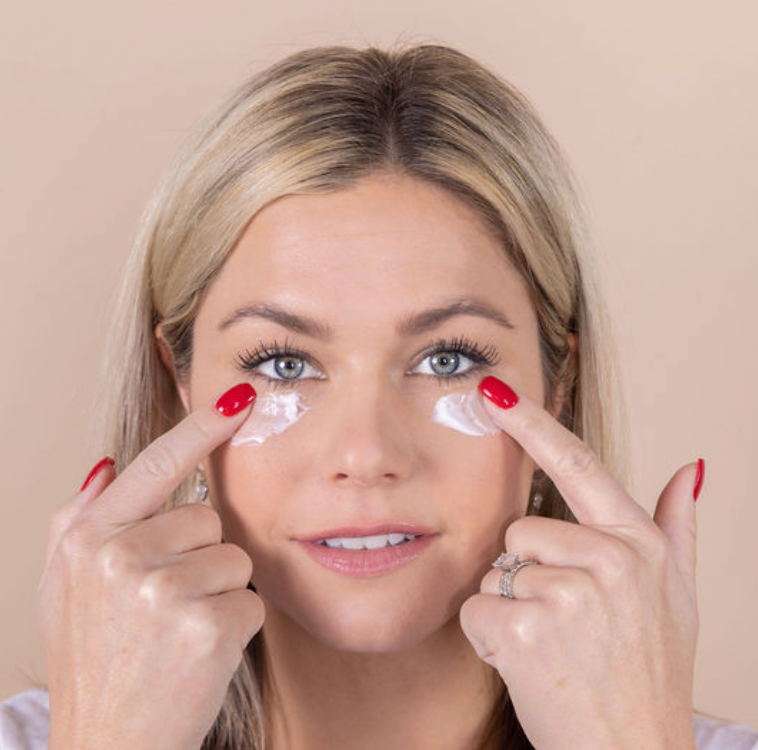Squalane is quickly gaining “cult-fave” status among skincare enthusiasts. We’re not surprised, given the many benefits of squalane for your skin.
For instance, it is just as hydrating and soothing as another beloved skincare ingredient, hyaluronic acid. However, it also has unique skin benefits that other ingredients don’t have.
But you may be asking, what is squalane in the first place? And given the many skincare ingredients out there, is squalane worth the hype?
It surely is! But don’t just take our word for it. This article will dive deep into squalane and why it is considered a powerhouse skincare ingredient.
What Is Squalane?
Squalene vs Squalane
First, it is vital to distinguish between squalene (with an e) and squalane (with an a).
Squalene is the precursor of squalane. It is naturally found in the skin's lipid layers and comprises 13% of human sebum. Meanwhile, squalane is the saturated form of squalene. It has undergone hydrogenation, which means squalane is more stable and less prone to oxidation.
Squalane plays a crucial role in moisture regulation. As a potent hydrator, it helps prevent moisture loss and keeps skin supple and elastic.
Researchers also found that squalane has antioxidant properties, which may help protect against environmental pollutants and UV-induced oxidative stress.
However, squalane production tends to decrease as we age (similar to collagen). Studies found that the decline may start at around age 30. With lower levels of squalane, skin can be more prone to moisture loss — leading to dry, dehydrated, or itchy skin. This, in turn, can also lead to premature signs of aging.
This is one of the reasons why many are interested in squalane as a skincare ingredient.
Sources of Squalane
Squalane has been used in traditional medicine for many years. It was initially sourced from deep-sea shark liver oil. However, the resulting ethical and sustainability issues have given rise to plant-based squalane. The most common sources include olive oil, amaranth oil, sugarcane, palm oil, wheat germ oil, and rice bran.
Besides being a good hydrator, squalane also has a unique chemical composition. The result is a lightweight, odorless, and colorless compound with a highly stable shelf life. Given these benefits, it’s no surprise that squalane has become a popular skincare ingredient.
7 Benefits of Squalene for Skin
1. Keeps Skin Hydrated
As a derivative of squalene, squalane can mimic our skin’s natural oils. It helps keep our skin hydrated, which is why squalane is an excellent moisturizing ingredient.
Squalane is an emollient, so it helps soothe and smoothen skin. With a low molecular structure, squalane is easily absorbed. It is also able to penetrate deep layers of the skin. It can provide immediate moisture and relief for dry, flaky, or itchy skin.
2. Maintains a Healthy Skin Barrier
Squalene also has occlusive properties, leaving a thin film on the skin, which helps prevent transepidermal water loss. Nonetheless, squalane is lightweight and doesn’t feel heavy or greasy on the skin.
This powerhouse ingredient can help lock in moisture for compromised skin barriers. In addition, it keeps away impurities and irritants that could damage the skin.
3. Minimize the Appearance of Fine Lines and Wrinkles
Squalene is beneficial for skin health. However, squalene production tends to decrease as we age (similar to collagen). This can lead to the development of fine lines, wrinkles, and other signs of aging.
One of the benefits of squalane is that it can replenish our skin’s moisture levels. This helps make skin plumper, smoother, and more flexible. As such, fine lines and wrinkles look less noticeable.
4. May Protect Against UV Damage
Squalane is also known for its natural antioxidant properties. Studies have found that this powerhouse ingredient acts as a scavenger and helps reduce oxidation.
As such, squalane may help protect against UV-induced oxidative stress, which can lead to premature signs of aging. It can help reduce your risk of developing fine lines, wrinkles, rough skin texture, sunspots, or hyperpigmentation.
However, take note that squalane is not meant to replace sunscreen. Instead, it can be a complementary product since it’s rich in antioxidants, which help fight off free radicals.
5. Helps Manage Skin Conditions
Squalane is lightweight, odorless, non-comedogenic, and hypoallergenic. In addition, it has anti-inflammatory and antibacterial properties.
This makes squalane suitable for sensitive skin. It is also used to help manage skin conditions such as acne, eczema, psoriasis, and seborrheic dermatitis. Squalane can provide much-needed moisture without triggering or irritating skin.
6. May Help Regulate Sebum Production
If your excess sebum is due to dry, dehydrated skin, squalane may be able to help.
Since squalane is naturally present in sebum, it can mimic the natural function of oils on your skin. This helps keep moisture levels in check.
And as a result, your skin won’t need to overcompensate with excess sebum. This, in turn, can help reduce acne breakouts.
Despite being an oil, squalane is non-comedogenic so that it won’t clog your pores. It is suitable for all skin types. However, if you have oily or acne-prone skin, use squalane sparingly. Since squalane can potentially increase sebum levels, there is a potential to cause acne-related issues.
7. Works Well With Other Skincare Products
Another reason why squalane is such a powerhouse? Thanks to its lightweight, easily absorbed, and spreadable nature, it works well with most other skincare products.
As such, you won’t encounter any interference when incorporated into your daily skincare routine. On the contrary, it may even boost the effects of your other products.
This is why you’ll often find squalane mixed with active ingredients such as retinol, vitamin C, AHAs, and BHAs. The soothing and moisturizing properties of squalane help offset any irritation that may come with active ingredients.
Experience the Many Skin Benefits of Squalane
By now, you understand all the hype surrounding squalane. It truly is a powerhouse skincare ingredient!
Not only does it help hydrate and strengthen skin, but it may also protect against skin damage. With its unique chemical structure, squalane is suitable for all skin types — including those with sensitive skin and skin-related conditions.
Equally important, squalane has a lightweight and shelf-stable formulation — making it both effective and economical. You really couldn’t ask for more in a skincare ingredient.
Are you ready to experience the many skin benefits of squalene? Check out SKIN by XND! We offer squalane-based products: Shield & Protect — designed to repair dry and rough skin, improve skin texture and appearance, and Restore Night Moisturizer — a hydration booster packed with plant-based antioxidants for smooth and healthy skin.









Leave a comment
This site is protected by hCaptcha and the hCaptcha Privacy Policy and Terms of Service apply.